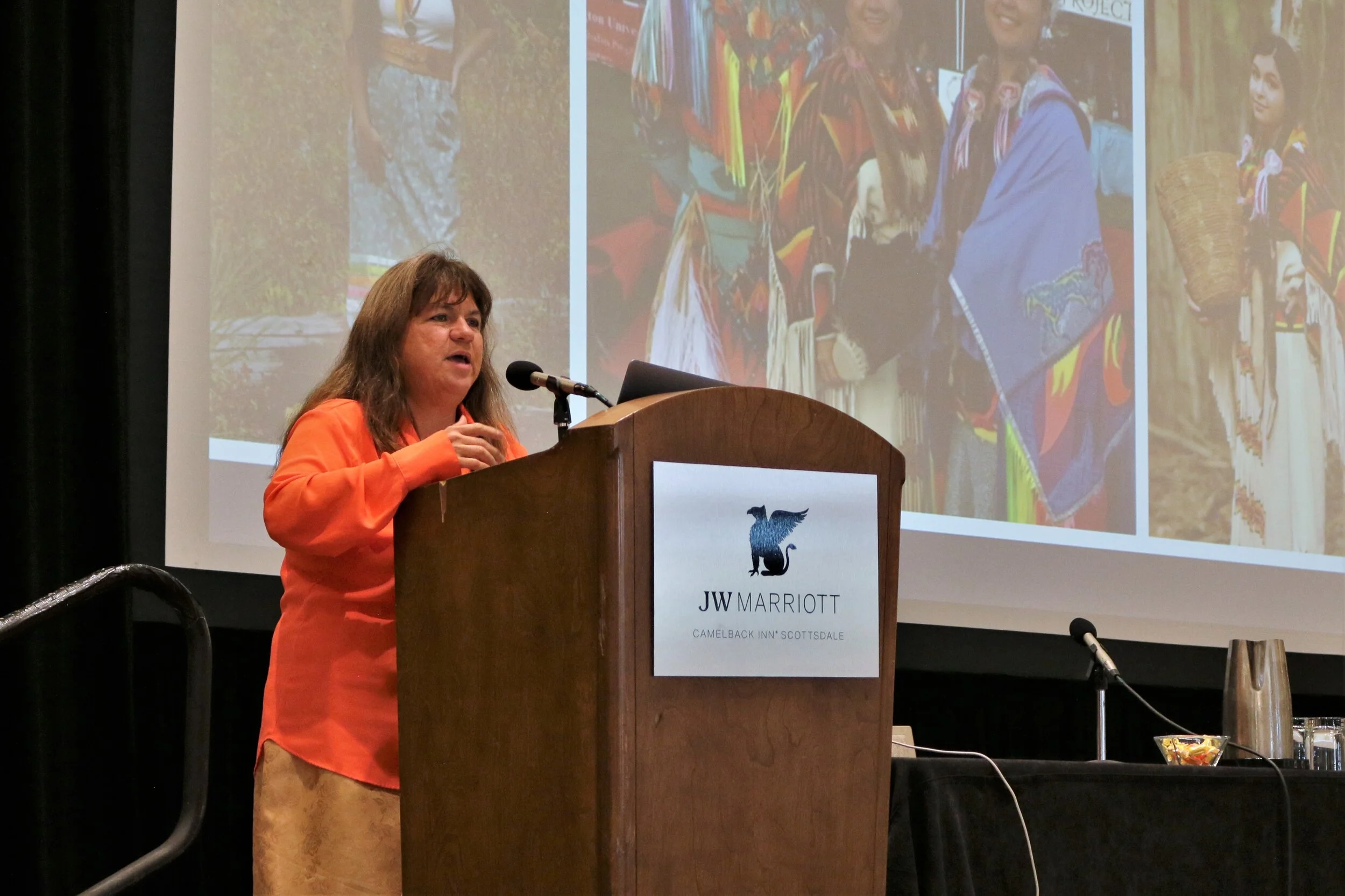Amplifying Indigenous Voices at this Year’s Western Planner Conference
by Ben Lubbers, Associate Planner II, Tulalip Tribes Planning Department
Margo Hill provides a keynote speech at the 2021 Western States Planning Conference
For the majority of Americans not much is known about modern day Native Americans and the diversity and resilience that exists in Indian Country today. Even local knowledge about our nearest tribal neighbors is often misunderstood or misrepresented. In addition, the local history typically does not include the painful past associated with the dispossession of lands and the institutional racism that continues to impact Native Americans and Alaskan Natives today.
However, despite the United States’ best attempts to “solve the Indian problem”, Native Americans and Alaskan Natives are still here! Moreover, Indigenous voices and history matter now more than ever when it comes to planning their own future, and the future of our country. Fortunately, with the help of the Western Planner conference and the Tribal and Indigenous Interest Group of APA, tribal voices are increasingly being heard.
With a conference designed to highlight indigenous planning issues in many sessions throughout the conference, more and more non-tribal planners are learning from an indigenous way of doing things. These efforts to be more inclusive and “listen to our neighbors” were highlighted by Margo Hill, a Native American keynote speaker from the Spokane Reservation. Giving Hill this platform and amplifying the voice of an often marginalized and misrepresented people provided an extraordinary opportunity for conference goers to hear firsthand the history, challenges, and accomplishments of the Spokane Tribe of Indians.
However, the Tribal and Indigenous Interest Group of APA recognizes there is still more work to do when it comes to telling a complicated land use history from a tribal perspective. Tribes across the nation face a variety of difficult land use challenges, jurisdiction disputes, and treaty rights issues that non-tribal planners are not always completely aware of. Exploring these inequities in a safe space and working with tribal and non-tribal planners alike to solve these issues is paramount to empowering Tribes to plan their own future.
At their annual meeting held at the Western Planner conference, the Tribal and Indigenous interest group met to reaffirm their mission to promote awareness, communication and action on tribal and indigenous planning issues for tribal and indigenous planners, peoples, nations and their non-tribal partners. During the meeting, Tribal leaders such as Elroy Keetso, an enrolled member of the Navajo Nation and planner for the Pueblo of Laguna, and Sherwin Racehorse, an enrolled member of the Shoshone-Bannock Tribes, spoke of their vision for the group to expand and grow.
With the momentum gained from the Western Planner Conference, the group plans to apply for division status with APA in the Fall. This elevated status will help the group grow its membership, attract new partners, and build capacity to achieve its mission and vision.
To get involved or support the Tribal and Indigenous Planning Interest group of APA. Visit their website: https://www.planning.org/divisions/groups/tribal/.
Join their list serve: https://mailchi.mp/a85df5cf5df8/tribalplanning.
Join their Linked IN page: https://www.linkedin.com/groups/6952941/
TRIBAL-FOCUSED SESSIONS AT THE 2021 WESTERN STATES CONFERENCE
Representative of Western Planner’s commitment to the West’s tribal communities and planning, the Western Planner conference included tribal-focused sessions scattered throughout:
Indigenizing the Planning Process: Weaving Tribal Planning Education & Experience
Deciphering the Ethos of Diverse Communities
Meeting Cross-Culturally with Tribes: Ethics and Etiquette
Planning with an Eye Towards Equitable Outcomes
Keynote Speaker, Margo Hill: “We get it right in the West!" — sunúm’t čsx̣meɫxʷ - "Listening to our Neighbors!”
Keys to Successful Tribally-owned Broadband Projects: Planning and Implementation
In addition, the Virtual Conference includes two Tribal sessions which were not offered at the in-person conference (STILL AVAILABLE TO WATCH FOR REGISTRANTS):
The Ethics of Cultural Competence
Racial Equity in Today’s Society: A Tribal Perspective
Outside the sessions, the Tribal & Indigenous Interest Group held an evening mixer, and during the Better Cities Film Festival, the longest film (~24 min.) in the Better Cities Film Festival (L’EAU EST LA VIE (water is Life): From Standing Rock to the Swamp) was on the indigenous peoples struggle with environmental justice.

